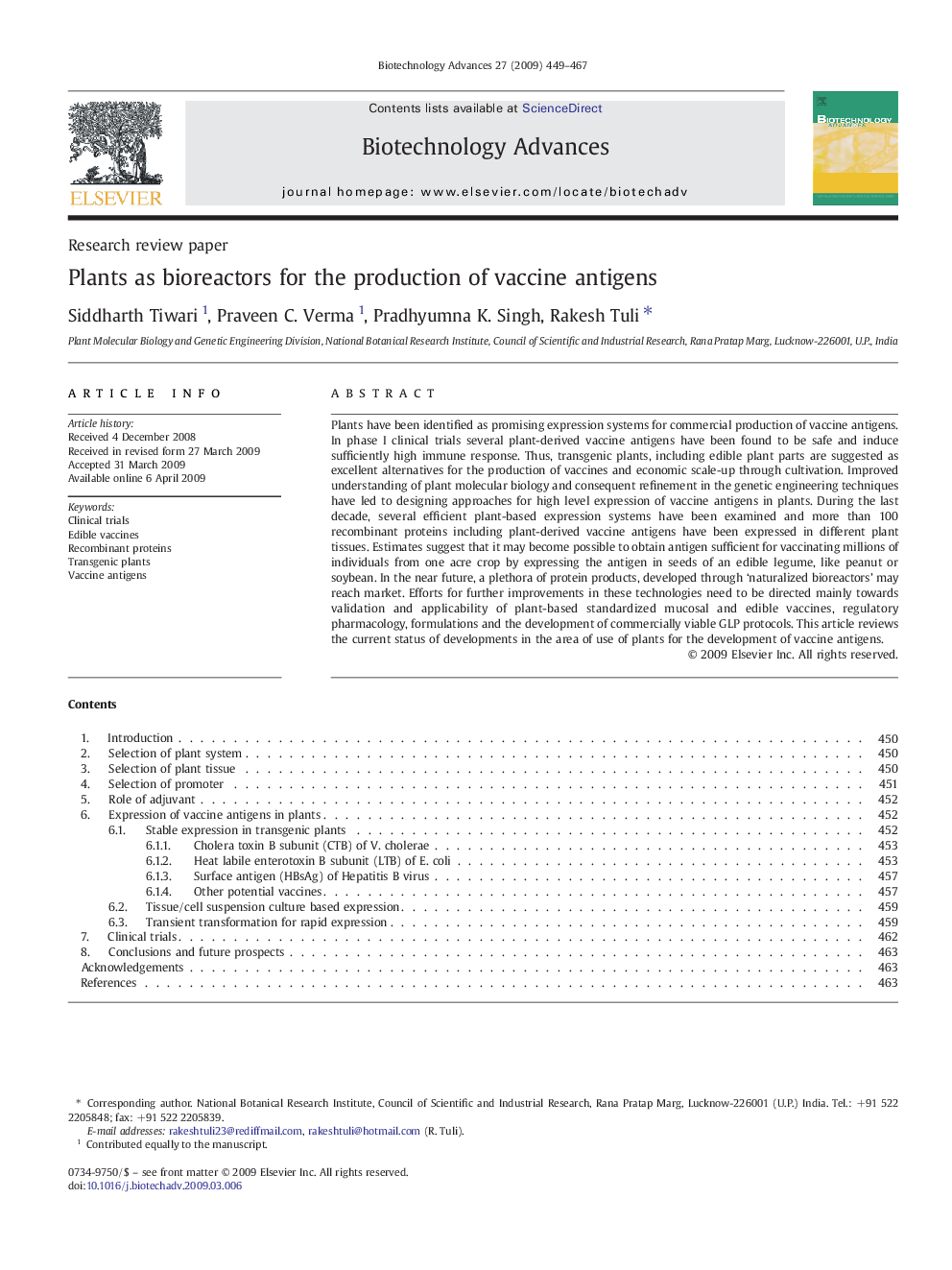| Article ID | Journal | Published Year | Pages | File Type |
|---|---|---|---|---|
| 14509 | Biotechnology Advances | 2009 | 19 Pages |
Plants have been identified as promising expression systems for commercial production of vaccine antigens. In phase I clinical trials several plant-derived vaccine antigens have been found to be safe and induce sufficiently high immune response. Thus, transgenic plants, including edible plant parts are suggested as excellent alternatives for the production of vaccines and economic scale-up through cultivation. Improved understanding of plant molecular biology and consequent refinement in the genetic engineering techniques have led to designing approaches for high level expression of vaccine antigens in plants. During the last decade, several efficient plant-based expression systems have been examined and more than 100 recombinant proteins including plant-derived vaccine antigens have been expressed in different plant tissues. Estimates suggest that it may become possible to obtain antigen sufficient for vaccinating millions of individuals from one acre crop by expressing the antigen in seeds of an edible legume, like peanut or soybean. In the near future, a plethora of protein products, developed through ‘naturalized bioreactors’ may reach market. Efforts for further improvements in these technologies need to be directed mainly towards validation and applicability of plant-based standardized mucosal and edible vaccines, regulatory pharmacology, formulations and the development of commercially viable GLP protocols. This article reviews the current status of developments in the area of use of plants for the development of vaccine antigens.
